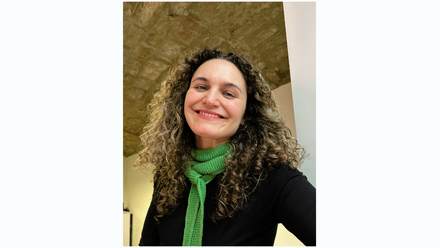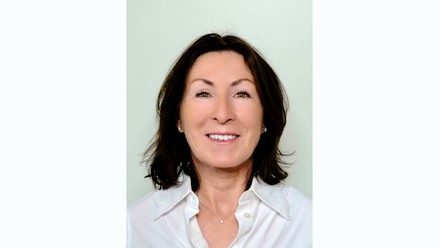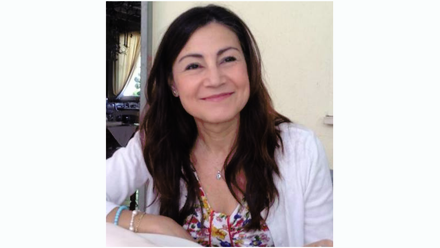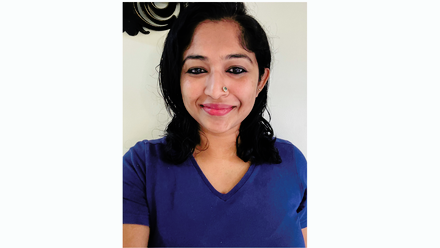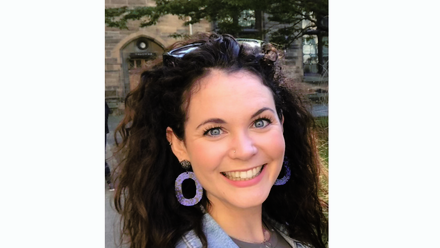ITI Profile: Caroline Cronin
We talk to Caroline Cronin, one of the two students awarded 'Best in class' at the recent Starting Up as a Freelance Translator course, in the latest of our ITI Profile series.
Course tutors voted for Caroline based on her course work, and the contribution made to the sessions and groups.
Here she talks about her career and experience of the SUFT programme.
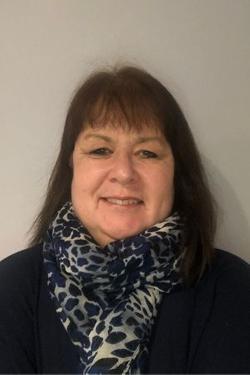
In the early part of your career, you worked for various companies in jobs where you used your languages. What sort of work did you do?
My first job after University was for a small commercial collaboration of higher education colleges in the South West area providing language services for industry, where I gained experience of project managing, translation, and proofreading. I also worked for two larger companies (a wine and spirits producer and an office furniture company) in administrative jobs using my languages (French and German), carrying out an ad hoc variety of translation of correspondence and documentation. One of the most interesting things I did was to translate a lengthy technical product catalogue for a German office furniture company acquisition.
What made you decide to become a freelance translator?
I’ve always wanted to translate! When I first graduated back in the 80s, it wasn’t financially viable at the time. I always kept an eye out for opportunities though and I did some ad hoc freelance work, both paid and voluntary, while taking some time out to bring up my children. I also did some Open University courses in English language and German while recovering from post viral fatigue to keep my brain ticking over and one day spotted their new MA in Translation. I signed up immediately!
You completed your MA in Translation with the OU in March 2020. What did you enjoy about the course?
It was a well-structured contemporary course with fantastic tutor support. It was interesting to engage with academic theory and put it into practice in a wide variety of specialisms as well as the practical tools of becoming a translator: CAT tools, MTPE etc. It was hard work but enormously satisfying. A group of us from the course are still in frequent contact; we all support and learn from each other on our varying translation paths.
Are you aiming to specialise?
Yes definitely. I come from a family of scientists and would like to work in the scientific and engineering fields with their support. My husband is an academic physicist specialising in microwaves who often works with patents, so I’d like to do German patent translation too if possible.
Why did you participate in the SUFT programme?
While the MA was excellent, I still felt daunted about plunging into freelance translation afterwards. How do you get started? Break the experience barrier? Market yourself? Prepare a quote and get paid? I hesitated about doing the course, because there are so many other costs to consider – hardware, software, CPD etc – but on the recommendation of others I decided to make the investment – and I’m so glad I did!
What were the most important things you learned from the programme?
I learned so many practical things, but I’d pick out the importance of not working in isolation. I’d already joined my local ITI Western Regional Group and then joined the ITI GerNet and STEPNet forums. Everybody has been very welcoming and supportive, and all the forums are treasure troves of wisdom and information to mine; I hope I can contribute something too as time goes on. I already liked using Twitter mainly as an information source but started to follow other translators too which was invaluable, plus also fun.
Deciding what subject fields to specialise in can be difficult when you’re just starting out, but I really understood the importance of specialisation and how to develop knowledge and experience in a particular area.
How did you feel when you found out the course tutors had voted you 'Best in class'?
Stunned to be honest! I’d totally engaged with the course and had spent a lot of time doing the 'homework' as I knew that the more I put in, the more I would get out. The tutors were very supportive, and the course participants were a very able and nice group to work with and I learned a lot from their input too, so everyone was a worthy candidate. But it’s nice to have that confidence boost. I know I can translate; now I feel I might be able to sell myself too.
Tell us about a piece of work you are proud of.
Probably my MA Extended Translation Project which was an academic paper on Brexit. I deliberately chose a challenging text because there were a number of linguistic as well as technical issues in it which I knew were going to really stretch me in a lot of different ways. I learned a lot from it and that’s what I continue to do.
I’ve also completed quite a few tasks for Translators without Borders now and really like putting knowledge to altruistic use.
What are your goals over the next 12 months?
To continue building up freelance work, putting into practice everything I’ve learnt from the SUFT course, and plenty more ongoing CPD.

